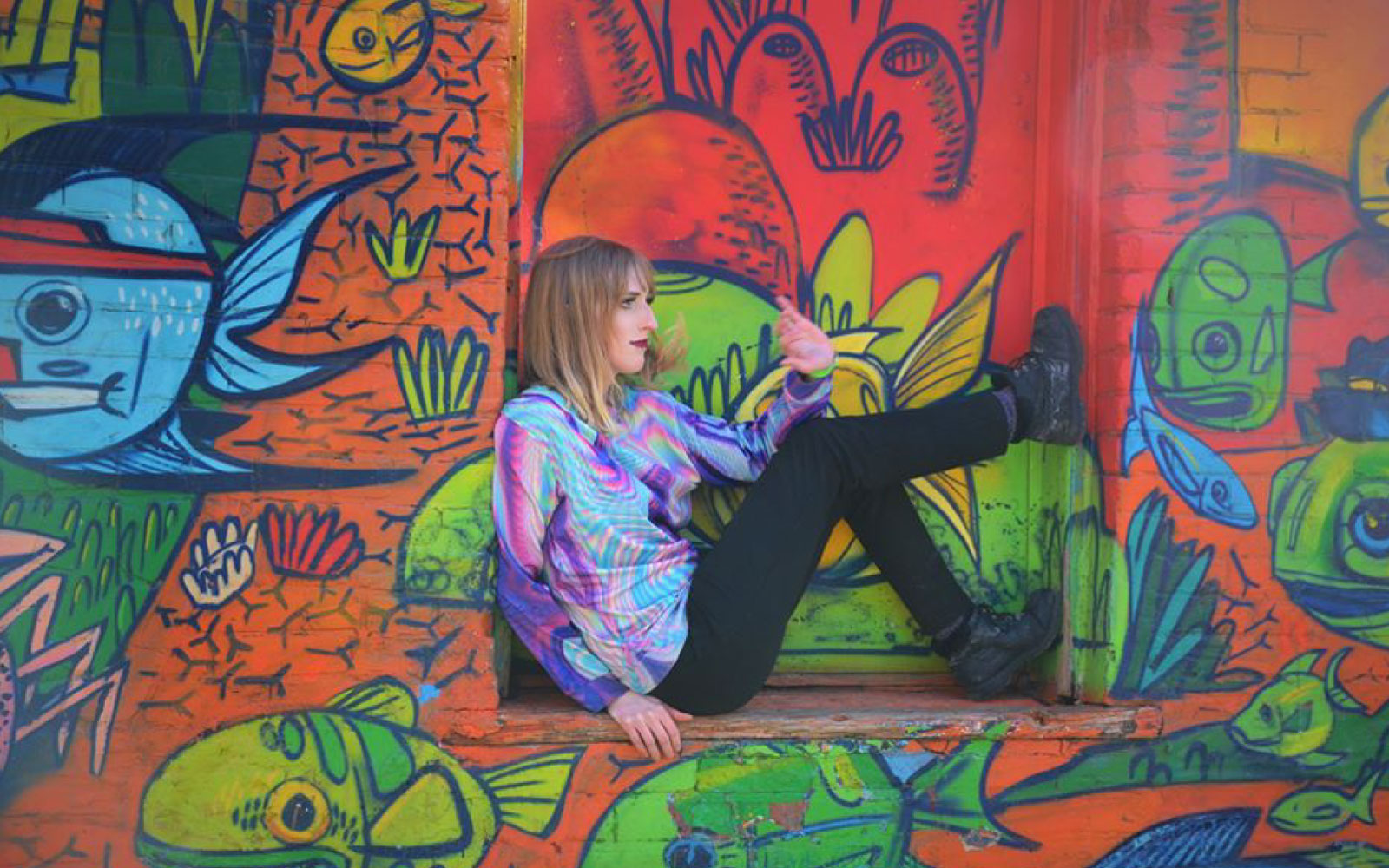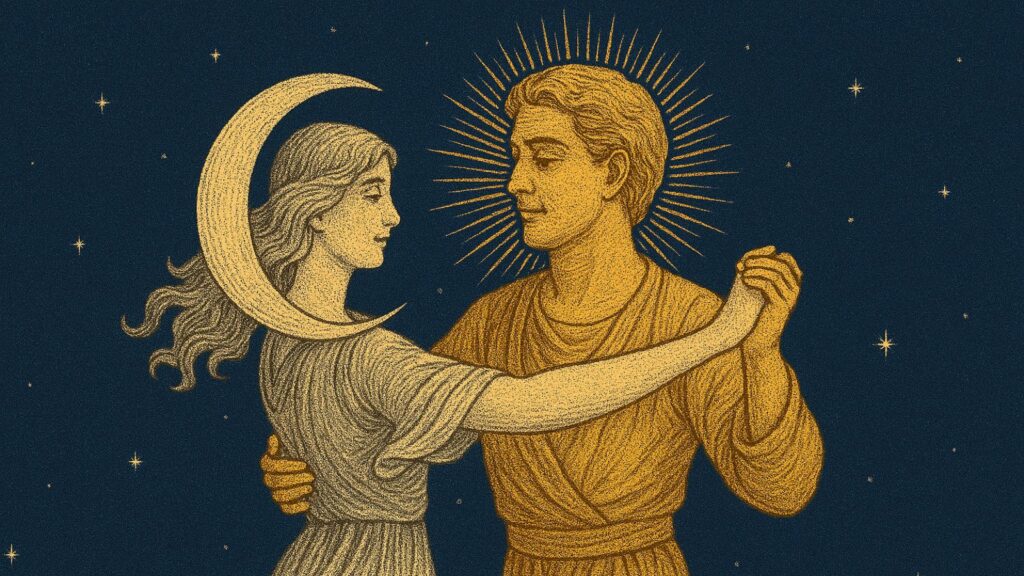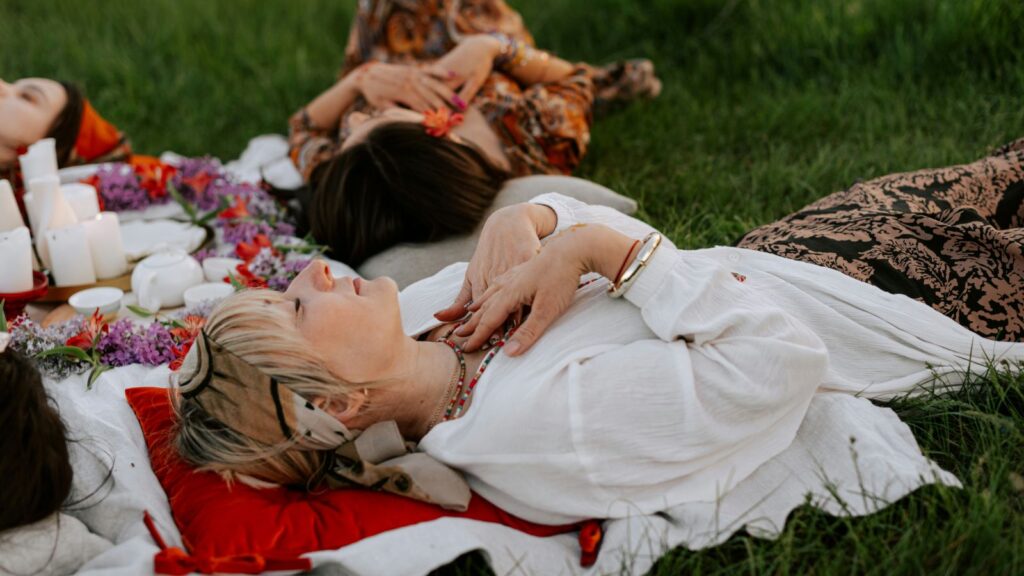I met Celestina Aurora Mądry in Toronto, Canada during the VRTO2018 conference. We were part of an unusual group of lectures, as the conference was largely about applications of virtual reality and VR products in general. However, the group Celestina and I found ourselves in focused on psychedelics, subjectivity, tech, and the self. Her talk was on qualia—a philosophical term about how we subjectively experience the world—and how both psychedelics and VR challenge our ideas about the mind. Everyone attending could tell Celestina knew what she was talking about—she was, in fact, a professional trip-sitter and harm-reduction specialist, witnessing thousands of psychedelic episodes during her career. She’s been working this unusual gig since 2016.
RS + Celestina Aurora Mądry Interview:
Why did you become attracted to harm-reduction and trip-sitting?
Celestina Aura Mądry: It’s mainly from stumbling on websites like Erowid about altered states of consciousness, I volunteered with a local harm-reduction organization.
RS: What made you want to do it?
CAM: A documentary I saw. It featured a clip of trip-sitters at a rave. Those people were cool. I wished something like that was here. Then I decided to track them down and sign-up.
RS: How many times have you trip-sit now?
CAM: More than I can count.
RS: What is trip-sitting?
CAM: Exactly what it sounds like a lot of the time. You just end up sitting with the person and holding space for them.
RS: Holding space?
CAM: Holding space is allowing someone to accept what’s going on just as they are. If they are quiet, don’t ask them to talk. Don’t ask them, “are you okay,” unless they ask you first whether they are okay. Holding space for someone is allowing someone to exist exactly as they are.
RS: What is it like?
CAM: It’s as emotionally draining as it is emotionally fulfilling.
RS: What do you mean by that?
Celestina Aura Mądry: It’s a lot of responsibility. The way that I look at it is that it’s like there’s a car accident. Someone went on a trip and there was an accident on the way. Instead of a vehicular accident, it is a drug induced spiritual, mental, or emotional accident.
Sometimes I trip-sit with people who are on non-entheogens, since the trip-sitting I do is generally in party settings. This includes drugs like alcohol, GHB, speed, and other party drugs. The psychedelic trip-sitting is the most emotionally intense, because you are pretty much responding to an accident deep in their soul. It’s not as concrete as responding to a car accident, or even a medical drug incident. Having a challenging psychedelic experience is a very intimate thing, and helping all these strangers at festivals and raves with such an intimate experience is very emotionally intense. Self-care is super important if you want to do this effectively.
That said, the drunk and G’d out (overdosed on GHB) people are the most difficult to trip-sit from a more logistical area. The drunk and G’d out people are the ones who fall over, vomit, pee themselves, et cetera. You have to look after them like you are babysitting an adult sized baby. GHB overdoses are also something I’ve seen very commonly in particular, since a lot of people don’t measure their doses with an oral syringe to keep track of the amount they’ve taken.
Unlike alcohol, it is often consumed all at once, rather than over time. This is an area where educational outreach makes a big difference. There was one festival where our team noticed a big problem with GHB overdoses. The next year, our team handed out an oral syringe to every single person who passed by our booth and educated them about how to dose GHB more safely. It helped significantly reduce the number of GHB overdoses.
With those kinds of drugs, we have to work closely with medical professionals. When someone gets past a certain point medically, we need to get them to the festival medics, and our team is trained to recognize those signs.
RS: What has stood out during these years?
CAM: That you might feel bad because you didn’t help as much as you could. That who you are sitting for might still have a difficult time despite your trip-sitting. You feel like you didn’t solve their problem. But they will come back the next day and say thank you so much. They say things like “You saved my life last night!” Often people don’t realize how much you helped them until after they’ve sobered up—especially if they were facing some sort of inevitable cognitive process that even the trip-sitting itself simply couldn’t sooth.
RS: So sometimes the focus is on ‘not solving’ the problem?
CAM: It’s not always about solving the problem. It’s about holding space for them. And the best you can do is be a loving presence with them as they go through their individual process.
That said—during other times—often there will be a distinct problem that needs to be solved. Like they lost their flashlight, or their friends, or their tent or something. These are the things that can send someone into a tailspin that often can be easily addressed by a trip-sitter. Part of the process involves determining whether or not that is the case.
RS: What tends to be a big trigger for people?
CAM: Friends play a huge role with psychedelic trip-sitting. By far the most common cause of a challenging psychedelic experience was when people lost their friends in a crowd. When they reunite with their friends, oftentimes their friends will kind of take over and help since they know that person well—and that safety and familiarity from a friend often helps get the person out of a psychedelic tailspin.
RS: Gaining trust is vital then, since neither person knows what’s going on?
CAM: As a stranger, you often have to establish yourself as a “safe” person. Especially if a tripper is feeling unsafe and no longer grounded given they lost their friends.
What this would often look like is that I would explain to them that I am a fellow “partier.” This is important so that they do not think that they’re “in trouble.” And that I am there to support them if they need it. I find that is the best way to word an introduction. I try not to mention anything about them being on drugs, unless they mention it first—since some people may be worried that they look obviously too high to others.
Introducing myself as a fellow “partier” seems to be a magic word to get this message across to a very high person. What I ultimately mean by it is, “I’m not going to increase your paranoia by specifically saying anything about you being uncomfortably high right now. But if that is the case, I am there to help you through it. You’re not in trouble for being high.”
RS: Why is trip-sitting important?
CAM: Because our society de-emphasizes subjective well-being while focusing exclusively on physiological well-being. At many festivals the medics are only trained to deal with medical emergencies. They are not trained to console people who are too high, and they are often very appreciative that we offload the medically-safe, but extremely high people from them.
RS: What do you mean by this difference between subjective well-being and physiological well-being?
CAM: Psychedelics are like very hot peppers. Physically-speaking they are benign. They do not cause any harm in a direct sense, but due to their intense subjective effects they can indeed still cause harm that may not be physically tangible. That’s what makes trip-sitters both valuable and important.
RS: What’s your big take away from all these experiences?
CAM: All harm-reduction work is mental, spiritual, and emotional harm-reduction work. These are neglected. And sometimes only the medical aspects of preventing a dangerous overdose or drug reaction are overemphasized while not mentioning anything in regards to the subjective outcome of the drug experience—which is the reason why people do drugs in the first place. I can understand the emphasis on the medical aspects, since the opioid crisis is killing so many people for example—but the subjective aspect all ties into it, and in a scope that goes far beyond psychedelics. For example, looking at the opioid crisis, it’s just as much about addressing the trauma that leads people to use to cope with it, as it is about preventing overdoses in the first place.
Drugs that still have very little physical impact are still worth understanding and being cautious of, because they have such a strong subjective impact—both in terms of negative outcomes, like a psychedelic crisis, and also in positive outcomes like using psychedelics therapeutically.
RS: What’s the most important piece of advice you have for future trip-sitters?
CAM: Make sure you have yourself taken care of before you take care of others.
RS Contributing Author/Interviewer: Elliot Edge
Eliott Edge is a multidisciplinary artist, author, and international speaker who has presented a variety of different material through Reality Sandwich, Disinformation, Medium, The Institute of Ethics and Emerging Technologies, The Museum of Computer Arts, The Lifeboat Foundation, VRTO, C.G. Jung Center, and many others. You can find them @OddEdges.
You can find Celestina Aurora Mądry on YouTube and Instagram @AetherealMeadow













